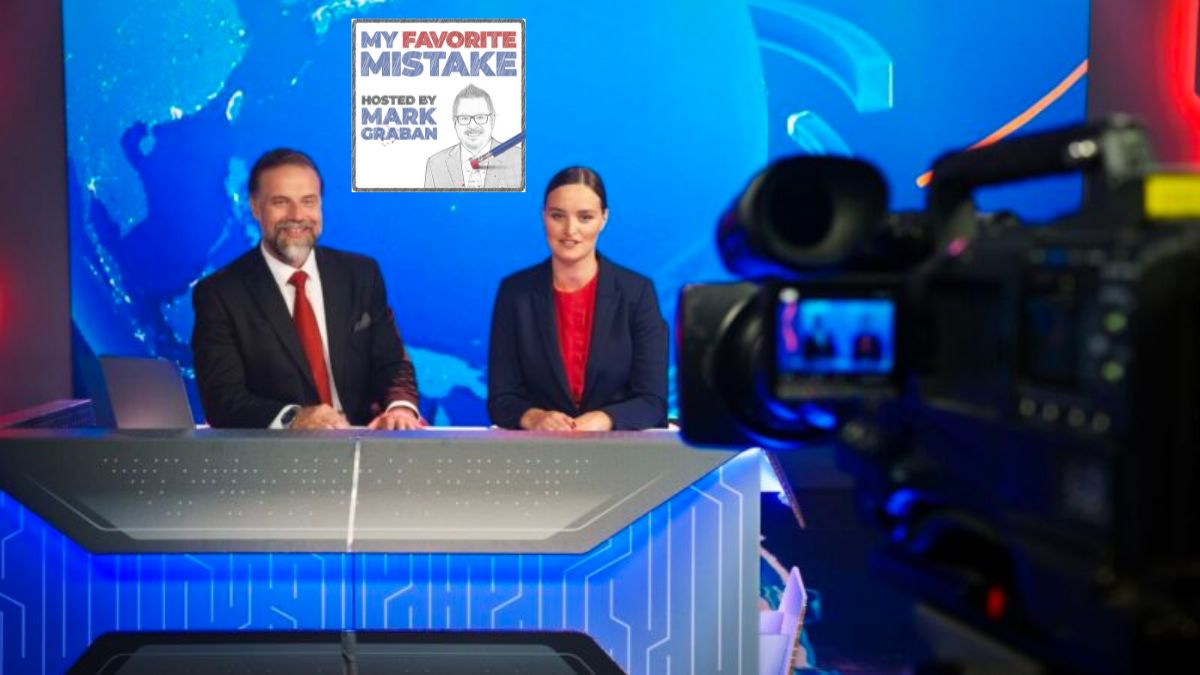This post is material cut from earlier drafts of my book, The Mistakes That Make Us: Cultivating a Culture of Learning and Innovation.
Karin Reed is the author of multiple books and is the CEO of a training firm called Speaker Dynamics. She was previously an Emmy-award-winning broadcast journalist. But mistakes started piling up in her first broadcast as an anchor for WKBN television in Youngstown, Ohio,
The “teleprompter” technology of the time was analog and rudimentary. The speed of the moving words was controlled by a foot pedal — or it was supposed to be. As she started the broadcast, the teleprompter script fell to the floor.
She describes herself as lucky, but the reality is that Karin planned for the possibility that a problem would appear. Karin had the script on paper in front of her on the desk. She managed to make it through the broadcast. This first broadcast taught her that she “always needed to have a Plan B.”
Why did the script fall to the floor? It was her mistake, a slip where she pressed the reverse pedal instead of forward — so it fell out of the machine.
“You can bet I checked it every time from that point on,” she recalls, but being careful isn’t enough to prevent simple slips. Maybe the equipment could be modified so the script can’t fall out if Karin (or another anchor) mistakenly hit reverse at the start. Did the prompter even need a reverse function? Are the pedals too close together?
As broadcast news moved to digital technologies, that same mistake wouldn’t happen today. But, we sometimes prevent one mistake and create the risk of new ones.
For example, one traditional cause of medication errors was doctors’ sloppy handwriting. With new electronic medication ordering systems, the risk of misreading handwriting is replaced by the new risk of a doctor clicking the wrong place or accidentally hitting the scroll wheel on their mouse after clicking on the medication.
Once, I made a similar mistake with a website and a mouse’s scroll wheel. All it meant was that I booked a flight on the wrong day. My version of that mistake was embarrassing (and cost me a change fee), but the hospital version of that mistake can be harmful or deadly.
Karin’s story would be directly helpful to us if we were also an early 1990s broadcast anchor using that old technology. That’s not us. But, because she shared her story, we can gain a better appreciation for always having a backup plan to mitigate the effect of mistakes. We can apply that general lesson to our work.
“If you don’t learn from your mistakes, then they become regrets.” – John Cena, American wrestler and actor



